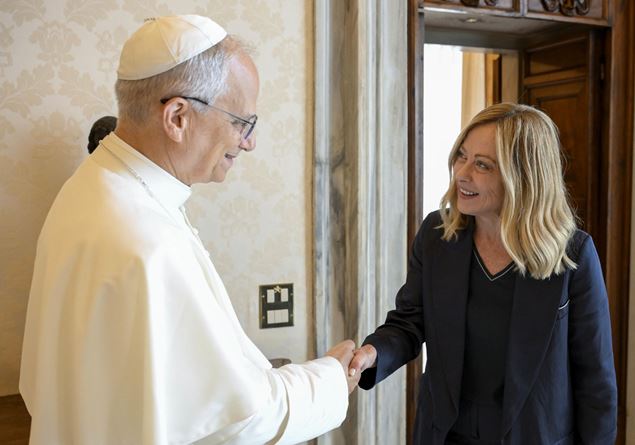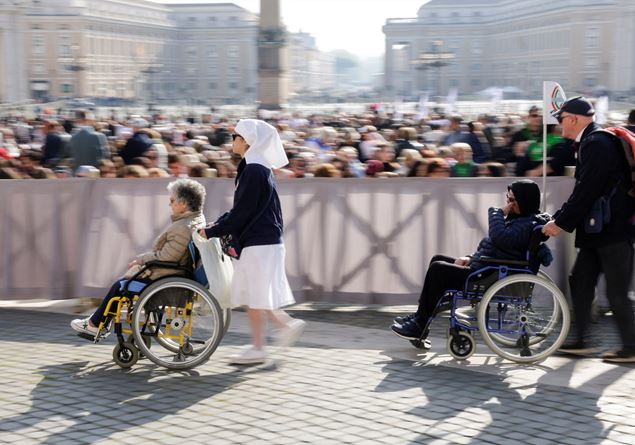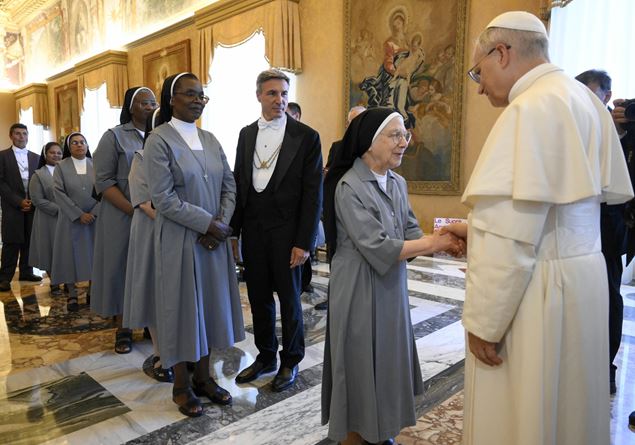Over twenty thousand people from 90 countries in the world applaud when Monsignor Rino Fisichella, at the time of homily, recalls that “a few meters from us Pope Francis, from his room in Santa Marta, is particularly close to us and is participating – like so many sick people, many weak people – is participating in this saint Eucharist through television”. The pro-prefect of the Dicastery for the new evangelization, is said to be “particularly happy and honored to offer my voice to read the homily that he has prepared for this occasion”. The Gospel speaks of the adultera that the scribes would like to tease.
“Here is a person, a woman, whose life is destroyed,” writes the Pope, “from a moral sentence. She is a sinner, and therefore far from law and condemned to Costcism and death. There seems to be no more hope for her too. But God does not abandon it. Indeed, just when his torturers already tighten the stones in the hands, right there, Jesus enters his life, defends it and subtracts it from their violence, giving her the opportunity to start a new existence: “Go ‘ – he says -” You are free “,” You are saved “”. The Pope underlines that “there is no exile, neither violence, nor sin, nor any other reality of life that can prevent him from being on our door and knocking, ready to enter as soon as we allow it. Indeed, especially when the tests are harder, his grace and love hold us even stronger to recover. “
Words that, says Francesco himself, arrive “while we celebrate the jubilee of the sick and the world of health, and certainly the disease is one of the most difficult and hard tests of life, in which we touch how fragile we are. It can get to make us feel like the people in exile, or like the woman of the Gospel: without hope for the future. But that’s not the case. Even in these moments, God does not leave us alone and, if we abandon ourselves to him, right where our strengths come, we can experience the consolation of his presence ». To him, he adds, “we can say and entrust our pain, sure of finding compassion, closeness and tenderness. But not only. In his confident love, in fact, he involves us because we can become in turn, for each other, “angels”, messengers of his presence, to the point that often, both for those who suffer and for those who assist, the bed of a patient can be transformed into a “holy place” of salvation and redemption “.
And by contacting the “dear doctors, nurses and members of the health personnel” it reminds them that “while you take care of your patients, especially of the most fragile, the Lord offers you the opportunity to continually renew your life, nourishing it with gratitude, mercy, hope. He calls you to illuminate it with the humble awareness that nothing is obvious and that everything is a gift of God; To feed it with that humanity that is experienced when, letting the appearances fall, remains what matters: the small and large gestures of love. Allow that the presence of the sick enter as a gift in your existence, to heal your heart, purifying it from everything that is not charity and warming it with the ardent and sweet fire of compassion ».
Then he cheers on the sick, underlining how much, “in this moment of my life I share a lot: the experience of infirmity, to feel weak, to depend on others in many things, of needing support. It is not always easy, but it is a school in which we learn every day to love and let ourselves be loved, without demanding and without rejecting, without regretting and without despairing, grateful to God and the brothers for the good we receive, abandoned and confident for what still has to come. The hospital room and the bed of infirmity can be places in which to hear the voice of the Lord who also says to us: “Here, I do a new thing: right now, don’t you notice?”. And so renew and strengthen faith ». He borrows the words of Benedict XVI, “who gave us a beautiful testimony of serenity in the time of his illness” to say that “the measure of humanity is essentially determined in the relationship with suffering”. And that “a society that cannot accept the suffering (…) is a cruel and inhuman society”. The pontiff concludes by recalling everyone to “face suffering” because this “makes us more human”. “Sharing pain is an important stage of every path of holiness” and therefore “we do not relegate those who are fragile away from our life, as unfortunately today sometimes it does a certain type of mentality, we do not ignite the pain from our environments. Rather, let’s make an opportunity to grow together, to cultivate hope thanks to the love that first God poured into our hearts and which, beyond everything, is what remains forever “.










